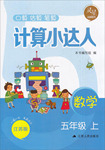题目内容
| 完形填空。 | ||||
| Some myths (神话) are stories told since ancient times to explain the causes for natural happenings. The Greek myth that explains why there are changes of 1 is about Demerter, the goddess of the harvest. She had a daughter, Persephone, whom she loved very much. Hades, god of the underworld, fell in love with Persephone, and he asked Zeus, the 2 of the gods, to give Persephone to him as his 3 . Zeus did not want either to disappoint Hades or to upset Demeter, so he said he would not agree to the marriage, but neither would he 4 it. Hades, therefore, decided to take the girl without 5 . When Persephone was picking flowers in the garden, he seized her and took her to the underworld. When Demeter 6 what happened to Persephone, she became so 7 that she caused all plants to 8 . People were in 9 of starving (挨饿). But Demeter was determined not to let crops grow 10 her daughter, Persephone, was returned to her. 11 , still not wanting to disappoint Hades, decided upon a condition for Persephone's 12 . She could go back to her mother if she had not 13 anything while she was in the underworld. Demeter 14 it because she did not know that Persephone had eaten several Pomegranate (石榴) seeds in the underworld. When Zeus 15 this, he agreed that Persephone could spend part of the year with her 16 , but he added that since she had eaten the seeds, she must spend part of the year in the underworld. And so it 17 that when Persephone is in the underworld, Demeter is sad and therefore 18 not let the crops grow. That is 19 we have winter when plants do not grow. When Persephone returns, Demeter is 20 , it is spring, and plants begin to grow again. | ||||
|
1-5. BBAAD 6-10. DCCAB 11-15. BACDA 16-20. BCDCD

练习册系列答案
 灵星计算小达人系列答案
灵星计算小达人系列答案
相关题目
| 完形填空。 | ||||
| "So teach him to close the door", my daughter Emma responded after listening to me 1 , again, about the dog coming in from the back door, bringing with him a blast of Buffalo January 2 air. Teach a dog to close a door behind him? That has got to be a really, really 3 thing to do.But then she took it a step 4 . "Come on Kolby", she said, grabbing (抓住) some treats and 5 him in front of the open door. "Touch." And "touch" he did, which moved the door to a 6 position. She 7 him with a treat, smiled, looked at me, and said "see!" And I saw and became 8 . Over the last few days I have been consistent (一致的) with Kolby. Each time he comes in I 9 him back to the open door patiently and ask him to close.There have been 10 in the beginning, but lately more and more successes. However, there remains much work to be done.I have to get him follow my hand signal again and again 11 he will close the door from a distance. But, I now realize, as long as you keep to the 12 , the task will be completed, and, with the way things are progressing, 13 quickly. What a 14 treat to have a dog that can close the door after himself! Even more wonder can be found in the 15 I learned so clearly from both Emma and Kolby. A wish is just a wish until you decide to take 16 . Once you 17 the belief that it is"too hard", then it remains "too hard" and out of 18 . Once you decide to accomplish a goal, and 19 that it is"easy", then it becomes "easy" to do what needs to be done. Just 20 doing it. | ||||
|
| 完形填空。 | ||||
| "So teach him to close the door", my daughter Emma responded after listening to me 1 , again, about the dog coming in from the back door, bringing with him a blast of Buffalo January 2 air. Teach a dog to close a door behind him? That has got to be a really, really 3 thing to do. But then she took a step 4 . "Come on, Kolby", she said, grabbing some treats (犒劳物) and 5 him in front of the open door. "Touch." And "touch" he did, which moved the door to a 6 position. She 7 him with a treat, smiled, looked at me, and said "see!" And I saw and became 8 . Over the last few days I have been with Kolby. Each time he comes in I bring him back to the 9 door and ask him to close. There have been 10 in the beginning, but lately more and more successes. However, there remains much work to be done. I have to get him to follow my hand signal again and again 11 he will close the door from a distance. But, I now realize, 12 you keep to the focus, the 13 will be completed. What a 14 treat to have a dog that can close the door after himself! Even more wonder can be found in the 15 I learned so clearly from both Emma and Kolby. A wish is just a wish until you decide to take 16 . Once you 17 the belief that it is "too hard", then it remains "too hard" and out of 18 . Once you want to accomplish a goal, and 19 that it is "easy", then it becomes "easy" to do what needs to be done. Just 20 doing it. | ||||
|